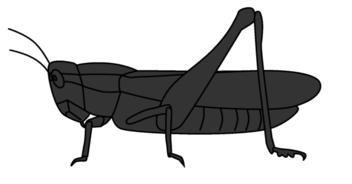
Do edible insects lead to harmful changes in the human body's metabolism, a drop in the immune system, and introduction of dangerous parasites? No, that's not true: While some insects may be poisonous to humans, and parts of some insects may not be digested entirely by humans, insects are not harmful if eaten properly. The European Food Safety Agency has so far approved four insects as "Novel Food" including 'lesser mealworm' of certain beetles, and house crickets. Locusts and house crickets have also been identified as safe.
The claim that eating insects is harmful was published by @to_je_nas_svet on April 4 with a speaker saying:
Do you know what it means to eat insects? It has three levels of problems. Level number one - chitin, which forms the shell of insects, changes your body's metabolism. Level two - your immune system's functionality will drop by 30 to 40 percent. Problem number three - most insects contain parasites. Most of those parasites are untreatable with available drugs. This brings us back to what is called the depopulation program.
This is what the post looked like on TikTok at the time of writing:

(Source: TikTok screenshot taken on 13 Jun ? 09:10:22 2023 UTC)
Claims about the alleged danger of insect consumption by humans due to the content of chitin began to circulate after the European Commission's permit for the commercial use of mealworms in frozen, mushy, dried, and powdered form, as well as house crickets in partially defatted form, came into effect at the beginning of January this year.
No study has shown a significant change in metabolism from ingesting insects. In fact, the nutritional value of insects is comparable to commonly eaten meats. Chitin in insects is not dangerous and there is no known connection to suggest that chitin may cause cancer or other issues.
The claim that eating insects is part of global depopulation program has also been previously debunked here and here. The hazards of edible insects remains a popular claim among certain purveyors of misinformation















